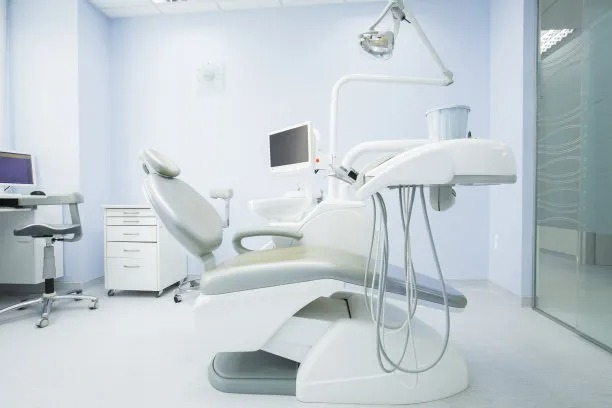Summary: Dental implantation offers a promising solution for individuals looking to restore their smiles and enhance their oral health. However, achieving optimal success and health outcomes requires careful consideration of several essential precautions before the procedure. This article explores four critical areas: pre-surgical assessment, the importance of oral hygiene, the role of lifestyle choices, and selecting the right dental professional. Each area provides insights into the fundamental practices that can lead to a successful dental implant experience and long-lasting results. By understanding these key precautions, patients can better prepare themselves for an effective and healthy outcome, ensuring that their investment in dental health yields the best possible return.
1. Comprehensive Pre-Surgical Assessment

Before undergoing dental implantation, a thorough pre-surgical assessment is crucial. This evaluation typically includes a complete medical history and a detailed dental examination to identify underlying issues that could affect the success of the procedure. Factors such as bone density, gum health, and overall physical condition must be considered. This comprehensive approach ensures that any potential risks are identified early on, allowing for a tailored treatment plan to be developed.
Moreover, imaging technologies like X-rays or 3D scans provide valuable insights into the jawbone structure and the placement of the implants. These images help dental professionals determine the appropriate positioning and angle for the implants, minimizing complications during surgery. A well-conducted assessment lays the foundation for a successful dental implantation, as it helps establish what specific preparations might be required.
Lastly, discussing any medical conditions or medications with your dentist is vital, as certain health issues and medications can impact healing and complications. Informing your dentist about allergies, chronic illnesses, or ongoing treatments is essential for customizing your approach effectively.
2. Importance of Maintaining Oral Hygiene
Prior to dental implantation, maintaining optimal oral hygiene is essential for ensuring the best possible outcomes. Inadequate oral hygiene can lead to infections or complications during and after surgery, jeopardizing the success of the implants. Patients should be diligent in brushing and flossing their teeth regularly, focusing on all areas of the mouth.
Additionally, visiting a dental hygienist for a professional cleaning can be beneficial in eliminating plaque and tartar build-up. This not only creates a healthier environment but also helps in preparing the soft tissues of the gums for surgery. A clean oral environment can significantly reduce the risk of postoperative complications, ultimately leading to better healing times and implant success rates.
Using antibacterial mouth rinses might also be recommended to further enhance oral hygiene efforts. These rinses can help eliminate harmful bacteria, reducing the risk of infections that could compromise the procedure. Establishing a thorough oral hygiene routine before surgery can set the stage for long-term success following dental implantation.
3. Lifestyle Choices That Impact Success
Lifestyle choices play a significant role in the success of dental implants. Factors such as smoking, excessive alcohol consumption, and poor nutrition can adversely affect the healing process. Smoking, in particular, constricts blood flow, impedes healing, and increases the likelihood of complications, making it a critical area to address before undergoing surgery.
Patients considering dental implants should be encouraged to adopt a healthier lifestyle leading up to the procedure. This includes quitting smoking at least a few weeks before surgery and limiting alcohol intake, which can interfere with the body’s healing mechanisms. Furthermore, focusing on a balanced diet rich in vitamins and minerals can bolster the body’s healing capabilities and support immune function.
Engaging in regular physical activity also fosters better overall health, promoting better blood circulation, and ultimately aiding in recovery. Taking control of these lifestyle factors not only benefits the success of dental implants but enhances overall health and well-being as well.
4. Selecting the Right Dental Professional
Choosing the right dental professional for the implantation process is crucial for ensuring optimal health outcomes. Patients should look for specialists, such as oral surgeons or periodontists, who possess advanced training and experience with dental implants. The level of expertise can significantly influence the procedure’s success and the patient’s satisfaction with the results.
Moreover, reading reviews, requesting referrals, and evaluating the dental office environment can help in making an informed decision. A trustworthy professional will conduct a thorough consultation, explain the entire procedure, and address any concerns the patient may have, helping to establish confidence and comfort.
Finally, ongoing support and follow-up care are essential components that should not be overlooked. A good dental professional will provide guidance not only during the procedure but also throughout the recovery process. Establishing a strong relationship allows for better communication and exceptional patient care, leading to long-lasting and successful outcomes.
Summary:
In summary, ensuring optimal outcomes for dental implantation requires careful consideration of various essential precautions. From comprehensive pre-surgical assessments to maintaining robust oral hygiene, adopting healthier lifestyle choices, and selecting the right dental professional, each element plays a critical role in the success of the procedure. Being proactive in these areas can greatly enhance the healing process and extend the longevity of the implants.
This article is compiled by Vickong Dental and the content is for reference only.
Vickong Dental
Vickong Dental is a large medical group established in Hong Kong in 2008 by professors from well-known medical universities in Guangdong and Hong Kong, as well as medical doctors from key national '985' universities (including Master's supervisors and senior professors). The chain of branches brings together expert dentists with PhDs and Master's degrees from Hong Kong and Mainland China, committed to providing high-quality dental treatment.
"Vickong Dental Practices the University Motto of 'Healing and Serving Society,' with a Stable Operation for Sixteen Years. It Has Been honored with Hong Kong Enterprise Leaders's Choice,' and is a Global Trusted Implant Center for the Nobel Implant System. Recommended by Hong Kong Metro Broadcast and Guangdong Television, it Serves Customers from Over Thirty Countries and Regions, Gaining the Trust and Favor of Citizens from the Guangdong-Hong Kong-Macau Greater Bay Area and Surrounding Cities.

Thousands of customers' unanimous praise
The most recognized and highly recommended dental service by customers in the Guangdong-Hong Kong-Macau Greater Bay Area
We Ensure You Receive Detailed Care and Attention Here
Hong Kong standards, Shenzhen prices, Your Trusted English-speaking dentists

Vickong Dental Medical-Grade Instrument Disinfection Process
Vickong Dental Medical-Grade Instrument Disinfection Process

Vickong Dental Chain: A Warm and Comfortable Environment for Treatment






Appointment Hours

Q&A
Why choose Vickong Dental?
Vickong Dental practices the university motto 「Medicine to Benefit Society」, with each branch bringing together highly qualified dentists with doctoral and master’s degrees from Hong Kong and the Mainland, and has maintained seventeen years of steady operation。Recipient of 「2024 Hong Kong Enterprise Leaders Brand」, 「2025 Hong Kong Enterprise Leaders Brand」, a Nobel Biocare Global Trusted Implant Center, and a brand recommended by Metro Radio Hong Kong and Guangdong TV。
To date, we have served customers from more than thirty countries and regions,earning exceptionally high word-of-mouth recognition and trusted recommendations from residents across the Guangdong-Hong Kong-Macao Greater Bay Area and surrounding cities
We have eight major branches in Zhuhai、Shenzhen,and a consultation and service assurance center in Hong Kong,so you can book a free consultation at any time for any questions,which is very reassuring.
If I do not accept the quotation after the CT scan, will I be charged??
No! As long as the actual treatment has not started, you will not be charged any fees.
Will there be any additional charges during the treatment process?
No, there won’t be any additional charges. Before treatment begins, we will clearly explain the treatment plan and its corresponding fees. Only after the patient agrees and signs the consent form will we proceed with the dental service.
Can I pay in Hong Kong dollars?
Yes. Vickong Dental accepts payment in Hong Kong dollars. The amount will be converted based on the exchange rate of the day, and the applicable rate will be clearly communicated to you in advance.
Can I reschedule my appointment at any time?
Yes. Please contact us via **WeChat** or **WhatsApp** as early as possible, providing your original appointment time and details, along with your preferred new date and time slot for rescheduling.













